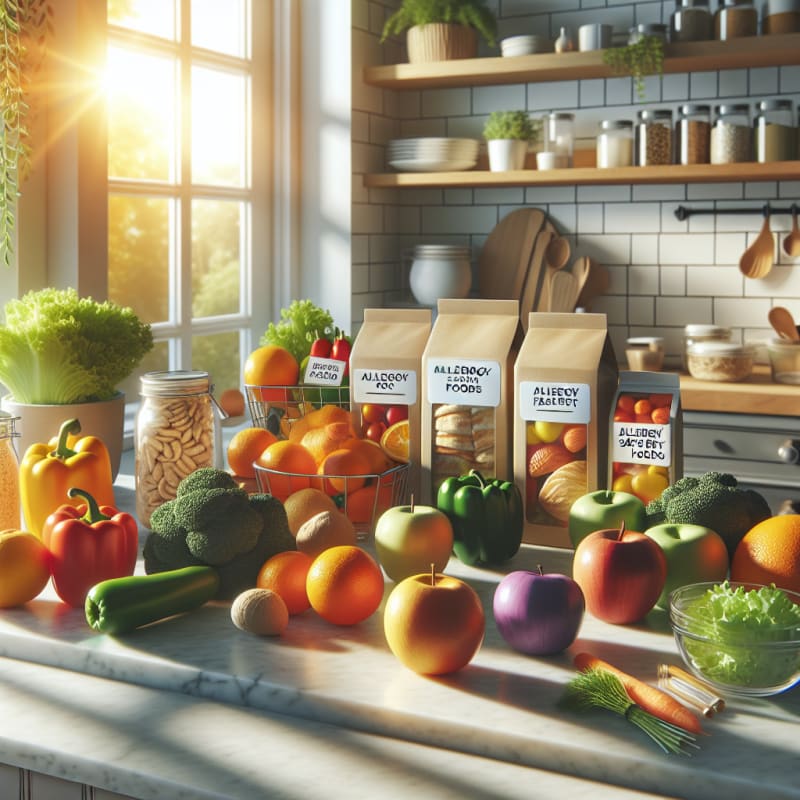Are There Any Misconceptions About Type 1 Diabetes That You’ve Had to Correct More Than Once?
When shopping for food or eating out, understanding ingredients is crucial—especially for those with chronic conditions like Type 1 Diabetes. Misconceptions about this autoimmune disease can lead to confusion, unsafe choices, and unnecessary stigma. Whether you’re managing diabetes, have food sensitivities, or simply want to make smarter food decisions, separating fact from fiction is essential. This article draws on expert insights, current news, and smart tools like Food Scan Genius to help you stay informed and empowered.
Common Misconceptions About Type 1 Diabetes
| Myth | Fact |
|---|---|
| Type 1 Diabetes is caused by eating too much sugar. | Type 1 Diabetes is an autoimmune condition; genetics and immune factors play a role, not sugar intake.[1] |
| People with Type 1 Diabetes can’t eat any sweets or carbs. | Carbohydrates and sugars can be consumed in moderation with insulin management and careful monitoring.[2] |
| Type 1 and Type 2 Diabetes are the same. | Type 1 is autoimmune and usually diagnosed in youth; Type 2 is often related to lifestyle and insulin resistance.[3] |
| Insulin is a cure for Type 1 Diabetes. | Insulin is a treatment, not a cure. Daily management is required. |
How Food Safety Alerts and Labeling Laws Impact People with Diabetes
Recent food safety alerts—such as the FDA’s recall of contaminated salad kits—demonstrate why ingredient transparency is vital for everyone, but especially for those with chronic conditions. In June 2024, the EFSA issued guidance on a new food additive that may affect blood glucose levels, highlighting the importance of staying updated on regulatory changes.
- U.S. (FDA): Requires clear labeling of major allergens and nutrition facts, but not all additives affecting blood sugar must be flagged.
- EU (EFSA): Enforces stricter rules on ingredient disclosure, especially for additives and sweeteners that could impact glucose management.
Understanding these differences helps consumers—especially those with diabetes—make safer choices when buying imported foods or traveling.
Emerging Food Trends and Their Impact on Diabetes Management
Plant-based products, keto snacks, and reformulated brands are reshaping grocery aisles. According to a Food Dive report, many brands now offer lower-carb options and sugar alternatives. While these trends can benefit blood sugar management, not all products are created equal. Some “sugar-free” labels use alternative sweeteners that may still affect glucose levels, as highlighted in recent Medical News Today coverage.
How Food Scan Genius Simplifies Smart Food Choices
For people with Type 1 Diabetes or food sensitivities, scanning every label is time-consuming. The Food Scan Genius app (download here) helps users instantly check for ingredients, allergens, and additives that matter for their health. Simply scan a product barcode, and get instant feedback tailored to your dietary needs and location.
User Testimonial: “Food Scan Genius saved me from buying snacks with hidden sweeteners that spike my blood sugar. I recommend it to anyone managing diabetes or allergies!” — Jessica P., New York
FAQs About Type 1 Diabetes and Food Choices
Can people with Type 1 Diabetes eat carbohydrates?
Yes, people with Type 1 Diabetes can eat carbohydrates, but they need to monitor their intake and manage insulin accordingly.[2]
What is the difference between Type 1 and Type 2 Diabetes?
Type 1 Diabetes is an autoimmune disorder requiring insulin, while Type 2 is often related to lifestyle and can sometimes be managed without insulin.[3]
How do labeling laws differ between the U.S. and EU?
The U.S. FDA requires major allergen disclosure and nutrition facts, while the EU EFSA mandates more detailed ingredient and additive labeling, especially for sweeteners and preservatives.
How can I stay updated on food safety alerts?
Monitor FDA and EFSA websites, subscribe to news feeds, and use apps like Food Scan Genius to get real-time alerts on product recalls and ingredient risks.
Conclusion: Smart Ingredient Choices for Diabetes and Beyond
Whether you’re living with Type 1 Diabetes, navigating food allergies, or simply want to eat smarter, understanding food ingredients and regulations is key. By debunking myths, staying current with food safety news, and leveraging smart tools like Food Scan Genius, you can make choices that support your health and lifestyle. Next time you shop or dine out, scan your products, check the latest alerts, and feel confident in every bite.
References:
[1] PubMed: Type 1 Diabetes Overview
[2] FDA: Diabetes and Diet
[3] American Diabetes Association: Type 1 Diabetes
News:
FDA: Latest Food Recalls
Food Navigator: EFSA Food Additive Alert
Food Dive: Plant-Based Food Trends 2024





